
Politics
13:39, 20-Jun-2017
Cuba slams Trump for revisiting failed Cold War policy
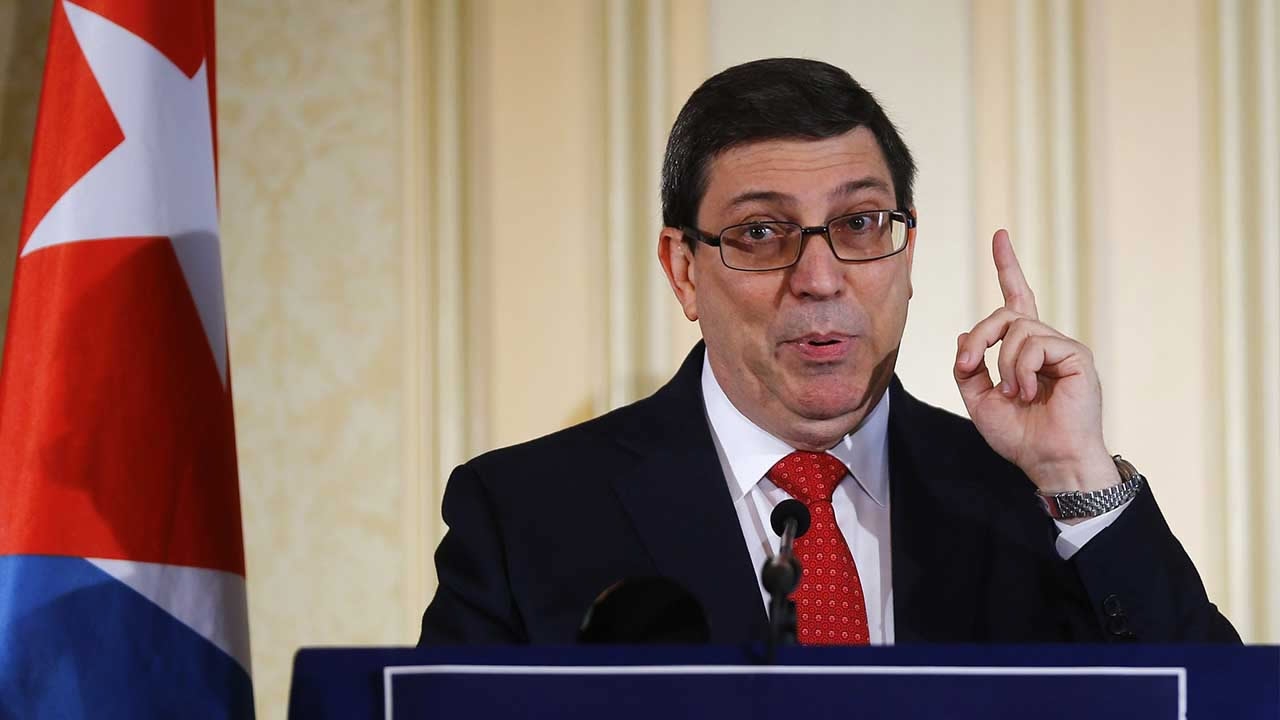
Cuban Foreign Minister Bruno Rodriguez on Monday called US President Donald Trump's recent speech on Cuba "a grotesque spectacle straight from the Cold War," while describing American fugitives in the island country as "fighters for civil rights".
Rodriguez rejected the Trump administration's tighter restrictions on travel and trade with Cuba. He made the remarks in Vienna, during his tour of European countries.
Trump announced last Friday that he was "canceling" his predecessor Barack Obama's policy towards Cuba by limiting the amount of money that might go toward the country's military-linked businesses, restricting American tourism there and reaffirming the 56-year-old trade embargo.
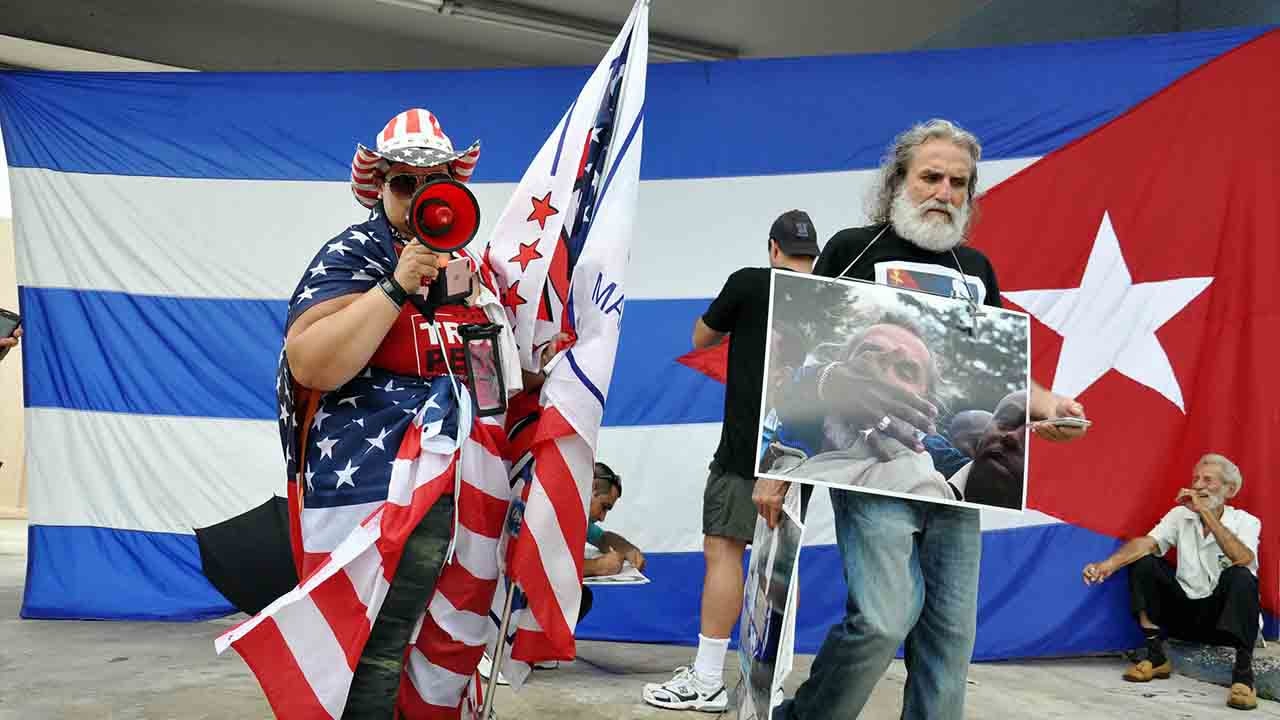
Havana refuses to bow to pressure
"It looks like revisiting the same policy that didn't work for 50 years – it is a failed policy," Cuba's top diplomat noted.
In response to Trump's claim that the US policy change aimed to defend human rights in Cuba, Rodriguez called it "surprising" because the US president "has based all his policies on things that are very distant from human rights proposes".
Mimicking Trump's typical Twitter style, Rodriguez quoted the US president's statement in Saudi Arabia last month: "He said 'We are not here to tell other people how to live.' Last Friday he said quite the opposite. Sad."
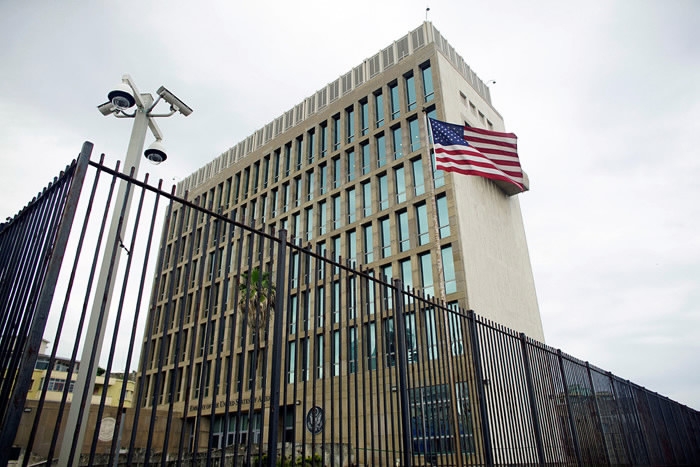
The US Embassy in Havana, Cuba. /VCG Photo
The US Embassy in Havana, Cuba. /VCG Photo
The Cuban foreign minister said his country would never negotiate under pressure.
"Cuba, as I have said, is willing to establish a dialogue, cooperation and the negotiation of pending issues of bilateral nature. Just as we will refuse to negotiate any issue related to the self-determination, independence and sovereignty of the Cuban people," he stressed.
Rodriguez added that the measures announced by Trump would reinforce patriotism, dignity and determination to defend the nation's independence among Cubans.
He acknowledged the policy change would hurt Cuba's economy. "It will wreak economic damage not just on Cuba's state companies but also on the cooperatives and private sector workers," he said, noting that the measures would hit US companies and citizens as well.
Meanwhile, Rodriguez said Cuba considered US fugitives who had been granted political asylum by the Cuban government "fighters for civil rights," refusing Trump's demand to return them to the United States.
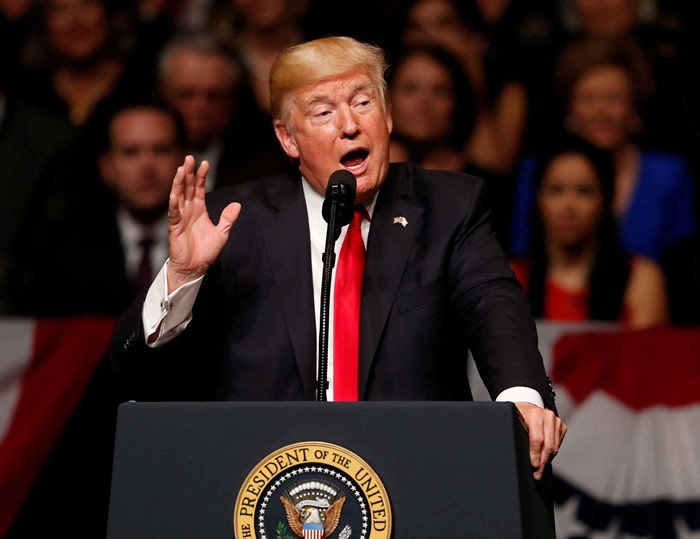
US President Donald Trump announces his Cuba policy in Miami, Florida, June 16, 2017. /VCG Photo
US President Donald Trump announces his Cuba policy in Miami, Florida, June 16, 2017. /VCG Photo
Partial rollback of Obama's policies
Announcing his policy change to a largely Cuban-American crowd in Miami last Friday, Trump said he was honoring his campaign promise to be "a voice against repression" and "a voice for the freedom of the Cuban people."
"Effective immediately, I am canceling the last administration's completely one-sided deal with Cuba," he claimed.
But is Trump really canceling Obama's agreements with Cuban President Raul Castro to normalize US-Cuba political and economic relations?
In fact, the White House's plans leave many of the Obama-era policies in place.
First of all, Trump stopped short of breaking diplomatic relations with Cuba, restored after over five decades of hostility on July 20, 2015.
Although he plans to tighten restrictions on individual Americans traveling to the Caribbean island, the restrictions will not apply to airlines and cruise ships.
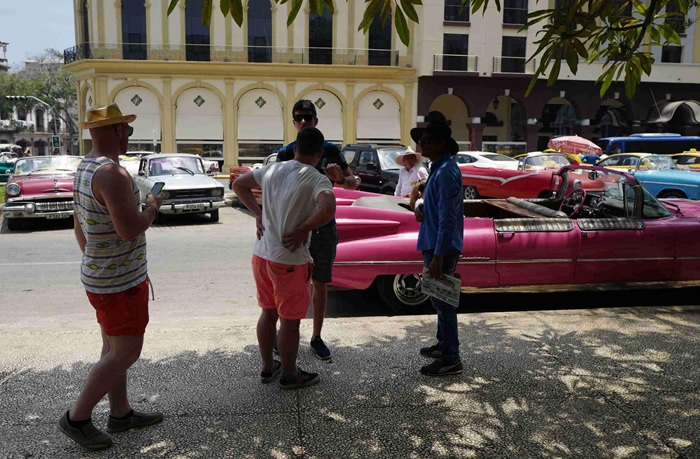
American tourists stand next to a vintage car in Havana, Cuba, June 16, 2017. /VCG Photo
American tourists stand next to a vintage car in Havana, Cuba, June 16, 2017. /VCG Photo
Trump did not resume the controversial "wet foot, dry foot" policy, allowing Cubans who reached the shore of the US to seek permanent residency, which was abolished by Obama.
And US companies can still do business with Cuba, except for the parts controlled by the military or its intelligence and security services.
Furthermore, Trump's policy change will not take effect until relevant departments have finalizes new regulations, which could take several months.
Comparing with the hardline approach he promised, the US president is moving to "a middle-ground territory" between hardliners and Democrats who favor thawing relations with Cuba, a report by NBC News indicated.
Related stories:

SITEMAP
Copyright © 2018 CGTN. Beijing ICP prepared NO.16065310-3
Copyright © 2018 CGTN. Beijing ICP prepared NO.16065310-3